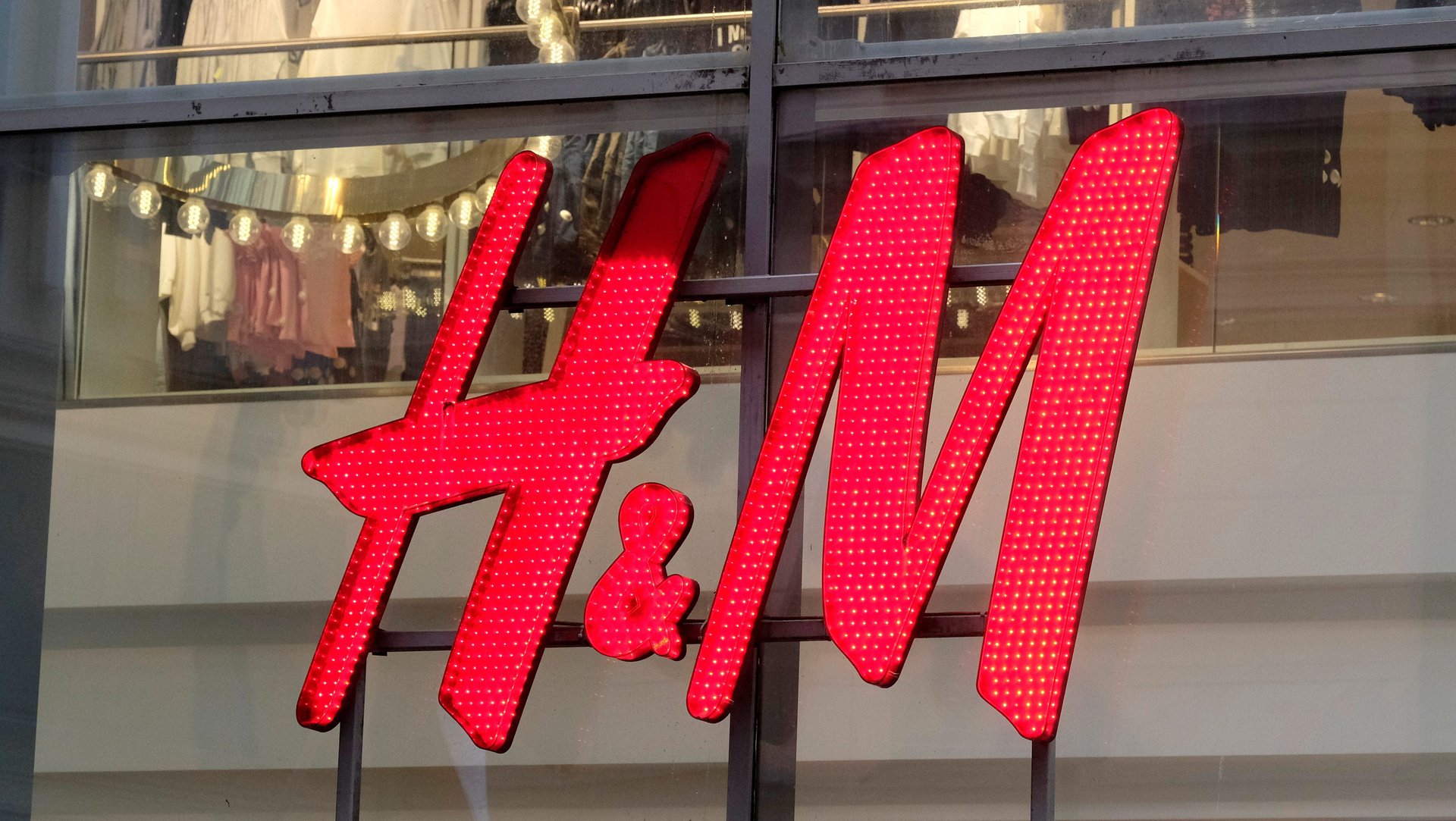H&M’s latest statement on Xinjiang cotton is very careful not to mention Xinjiang
China’s consumer boycotts of foreign brands over Xinjiang cotton are presenting major global companies such as H&M, Zara owner Inditex, and Nike with some unpalatable options to choose from—further annoy a major supplier and consumer market, or appear not to care greatly about human rights.


China’s consumer boycotts of foreign brands over Xinjiang cotton are presenting major global companies such as H&M, Zara owner Inditex, and Nike with some unpalatable options to choose from—further annoy a major supplier and consumer market, or appear not to care greatly about human rights.
Some are attempting to mollify Beijing by deleting old statements voicing concern about the alleged use of forced labor in the region, where researchers estimate as many as 1 million ethnics Uyghurs have experienced internment in detention camps since at least 2017. Others are telling different stories to different audiences, possibly in the hope that no one notices. H&M is trying a tack so carefully middle of the road that it’s hard to know quite what it’s saying.
The Swedish clothing retailer has been very much at the center of a storm that began last week, when patriotic calls for consumer boycotts of foreign clothing companies like it ricocheted across Chinese social media in response to the companies’ past statements pledging not to source from Xinjiang. Today (March 31), H&M issued a new statement on the topic—a carefully curated compilation of corporate jargon—that manages not to mention Xinjiang by name at all.
In a lukewarm attempt at threading a very fine needle, H&M tries to convey that it cares equally about the feelings of Chinese consumers and its responsibilities as a major buyer. Here’s the announcement in full, which is peppered with phrases like “find a way forward” and “building forward-looking strategies”:
We are working together with our colleagues in China to do everything we can to manage the current challenges and find a way forward.
China is a very important market to us and our long-term commitment to the country remains strong. Having been present there for more than thirty years, we have witnessed remarkable progress within the Chinese textile industry. Being at the forefront of innovation and technology, China will clearly continue to play an important role in further developing the entire industry. We are proud our suppliers are being part of that development and we want to continue contributing to driving progress together with our partners and stakeholders in the country. We want to be a responsible buyer, in China and elsewhere, and are now building forward-looking strategies and actively working on next steps with regards to material sourcing. Together with all relevant stakeholders, we want to collaborate to be part of the solution and jointly build a more sustainable fashion industry.
As a global company, we comply with local laws and regulatory frameworks in all the markets where we operate. Our company values are built on trust, respect, integrity, and dialogue. We wish to focus on our core business and on what we do best – bringing fashion and design to our customers all around the world.
We are dedicated to regaining the trust and confidence of our customers, colleagues, and business partners in China. By working together with stakeholders and partners, we believe we can take steps in our joint efforts to develop the fashion industry, as well as serve our customers and act in a respectful way.
The new statement from H&M is a stark contrast to one that it issued last year, and which set off a furor in China this month, soon after the European Union placed sanctions on Chinese officials over Xinjiang. In the 2020 statement, the company said it is “deeply concerned” by reports of forced labor and discrimination against “ethnoreligious minorities” in Xinjiang and explained in detail what it was trying to do about that. Here’s a portion of that statement:
H&M Group is deeply concerned by reports from civil society organisations and media that include accusations of forced labour and discrimination of ethnoreligious minorities in Xinjiang Uyghur Autonomous Region (XUAR). We strictly prohibit any type of forced labour in our supply chain, regardless of the country or region. If we discover and verify a case of forced labour at a supplier we work with, we will take immediate action and, as an ultimate consequence, look to terminate the business relationship…XUAR is China’s largest cotton growing area, and up until now, our suppliers have sourced cotton from farms connected to Better Cotton Initiative (BCI) in the region. As it has become increasingly difficult to conduct credible due diligence in the region, BCI has decided to suspend licensing of BCI cotton in XUAR. This means that cotton for our production will no longer be sourced from there.
Clearly, H&M is trying hard to strike a very delicate balance. By emphasizing the importance of China for the company, it wants to appeal to Chinese consumers. Meanwhile, by saying it wants to be a “responsible buyer,” the Swedish clothing giant also wants to fend off any potential criticism that it is bowing to Beijing over human rights in the face of pressure. Yet it’s likely to manage to achieve neither.
Many are likely to see the vague language as a sign of how effective the Chinese consumer boycotts can be in reshaping corporate messages as Beijing has become more comfortable in pursuing an aggressive diplomatic style that forced many foreign companies to apologize for “hurting the feelings of the Chinese people” in recent years.
Meanwhile, the vagueness of the new statement from H&M has also annoyed Chinese internet users. Hashtag #H&M statement didn’t mention Xinjiang# is already trending on China’s Weibo, with users criticizing the company for not explaining why it said it wouldn’t source products from Xinjiang in the old statement.
H&M declined to comment.